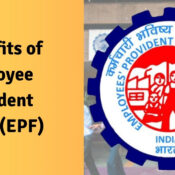Understanding Forex Transactions for NRI in India: A Complete Guide
Currency exchange in India has evolved to become a seamless process, accommodating the needs of both tourists and returning Non-Resident Indians (NRIs). Whether you’re dealing with leftover euros from a business trip or dollars from your overseas education, converting your foreign currency into Indian rupees is more accessible than ever. This guide aims to simplify the foreign exchange process and provide you with all the necessary information to navigate currency conversion in India efficiently.
Why do NRIs need to exchange currency in India?
Non-Resident Indians (NRIs) often need to exchange currency in India for several practical and financial reasons:
- Daily Expenses: NRIs returning to India for short visits or prolonged stays require local currency for daily transactions, such as shopping, transportation, dining, and other miscellaneous expenses. Having Indian rupees makes these transactions smoother and avoids the inconvenience of finding vendors who accept foreign currency.
- Investments: Many NRIs choose to invest in Indian real estate, stocks, bonds, or start business ventures. Transactions for these investments typically need to be done in Indian rupees. Converting their foreign currency into rupees allows NRIs to fund these investments efficiently.
- Family and Personal Obligations: NRIs often need to manage expenses related to family, such as educational costs, medical expenses, or supporting elderly parents. Having access to local currency is crucial for handling such responsibilities effectively.
- Better Exchange Rates: Sometimes, NRIs might convert currency in India to take advantage of better exchange rates offered by banks or forex traders here, compared to rates in their country of residence.
- Legal and Tax Compliance: For any financial transaction in India, it is often mandatory to use the local currency to comply with the local tax regulations and legal stipulations.
- Avoiding High Fees: Using foreign currency directly in India can come with high conversion fees and unfavourable exchange rates, especially when using credit cards or foreign bank services. Converting currency through authorised channels in India can reduce these costs.
- Real Estate Transactions: For NRIs looking to buy or sell property in India, transactions are usually conducted in Indian rupees. Converting their funds into the local currency is essential for completing these transactions.
- Emergency Funds: In case of emergencies, having readily available funds in the local currency can be crucial. Exchange rates and availability might not be favourable in urgent situations, so it’s practical to have a reserve of Indian rupees.
These reasons highlight why it’s often necessary and more convenient for NRIs to exchange their foreign currency into Indian rupees upon their arrival in India or through online forex services before their travel.
How to Exchange Currency in India?
1. RBI-Authorised Banks
The Reserve Bank of India (RBI) allows Indian banks to legally buy and sell foreign currencies. You can visit any RBI-authorised bank across the country to exchange your foreign currency. For NRIs, using an NRO (Non-Resident Ordinary) Account to facilitate this exchange can be particularly beneficial. Banks usually offer lower currency mark-up rates, making them an economical choice.
2. International Airports
Every international airport in India features currency exchange counters, providing a handy option for those needing immediate currency conversion. While the convenience is unmatched, be mindful that rates at airports tend to be less favourable due to higher commissions and fees. This option is best reserved for urgent needs.
3. RBI-Approved Money Changers
There are two types of RBI-approved money changers: Authorised Dealer Category II and Full-Fledged Money Changers (FFMCs). These are available throughout India’s major cities and towns and do not require you to have a bank account. They are a reliable alternative for converting large amounts of foreign currency.
4. ATMs
For straightforward withdrawals, ATMs are available 24/7 and offer a quick way to get Indian rupees using a foreign bank card. However, this convenience might come with higher fees, including exchange rate fees and additional service charges. Always review the total cost before using this method.
5. Forex Online Services
Online forex services are increasingly popular due to their convenience. You can check exchange rates in real-time, select the amount to be exchanged, and choose whether to receive hard cash or a Forex Prepaid Card. These platforms often offer competitive rates and the convenience of completing transactions from anywhere.
Required Documentation for Currency Exchange in India
To exchange currency, you will need the following documents:
– Passport: To verify your identity and nationality.
– ID and Address Proof: For Indian residents, PAN and Aadhaar cards are necessary.
– Confirmed Air Ticket: This is required to show travel plans within 60 days.
– Valid Visa: To confirm your eligibility for currency exchange based on your travel status.
Forex rules for NRIs travelling to India:
Foreign exchange (forex) rules for Non-Resident Indians (NRIs) travelling to India are governed by the Reserve Bank of India (RBI) under the Foreign Exchange Management Act (FEMA). Here are some of the key rules and guidelines that NRIs should be aware of when travelling to India:
- Declaration of Currency: NRIs entering India and carrying foreign currency in cash exceeding USD 5,000, or a combination of cash and travellers checks exceeding USD 10,000, must declare it to the Customs Authorities at the airport in the Currency Declaration Form (CDF).
- Currency Import Limits: NRIs can bring into India foreign currency without any limit. However, if the amount exceeds USD 5,000 in cash or USD 10,000 in cash and travellers checks combined, it must be declared as mentioned above.
- Repatriation of Funds: NRIs can repatriate funds held in their Non-Resident Ordinary (NRO) accounts up to USD 1 million per financial year, including the sale proceeds of immovable property, provided the necessary taxes have been paid.
- Investment in India: NRIs are permitted to invest in shares, securities, and properties in India, subject to compliance with FEMA regulations. Investments can be funded by inward remittances or by funds held in their NRE (Non-Resident External)/FCNR (Foreign Currency Non-Resident) accounts.
- Bank Accounts: NRIs can open and maintain NRE, NRO, and FCNR accounts to manage their income earned outside and inside India. Funds in NRE and FCNR accounts are freely repatriable.
- Conversion of Currency: NRIs can exchange foreign currency at authorised banks, money changers, or through online forex platforms. The conversion rates may vary depending on the service provider and the prevailing market rates.
- Use of International Credit and Debit Cards: NRIs can use international credit and debit cards in India. However, transactions will usually attract currency conversion fees, which should be considered while using these cards.
- Traveler’s Cheques: NRIs can bring traveller’s cheques in India and convert them into Indian currency. It’s advisable to keep receipts of transactions involving traveller’s cheques as proof of exchange
- Regulations on Carrying Indian Currency: NRIs are allowed to carry Indian currency up to ₹25,000 when travelling to India.
- Prohibition on Currency Trading: It’s important to note that currency trading outside recognized exchanges or speculative trading in foreign exchange is prohibited under FEMA.
These rules are designed to ensure that all currency transactions are conducted transparently and within the legal framework established by the RBI. NRIs should familiarise themselves with these regulations to avoid any legal complications while managing their finances in India.
Forex Rules regarding NRIs staying in India for a while
Non-Resident Indians (NRIs) staying in India for an extended period should be aware of certain forex regulations outlined by the Reserve Bank of India (RBI) under the Foreign Exchange Management Act (FEMA). These regulations are designed to manage foreign currency transactions efficiently and legally. Here are some key rules and guidelines relevant to NRIs who plan to stay in India for a while:
1. Foreign Currency Accounts:
NRIs can maintain foreign currency accounts in India, such as Non-Resident External (NRE) accounts and Foreign Currency Non-Resident (FCNR) accounts. The funds in these accounts are freely repatriable, meaning they can be transferred abroad without restrictions.
2. Conversion and Utilisation of Foreign Exchange:
– NRIs are allowed to convert foreign currency into Indian rupees as needed. However, once converted to rupees, the amount generally cannot be reconverted into foreign currency and placed back into NRE or FCNR accounts.
– They can use the rupees for any legitimate purpose including investment in property and securities, subject to other FEMA regulations.
3. Investments:
– NRIs are allowed to invest in shares, bonds, and other securities in India using funds from NRE/FCNR accounts or through inward remittances.
– Investments in real estate (except agricultural land, plantation property, or a farmhouse) are permitted.
4. Bank Accounts:
– Besides NRE and FCNR accounts, NRIs can also open Non-Resident Ordinary (NRO) accounts to manage income earned in India such as rent, dividends, or salaries.
– Money in NRO accounts can be remitted abroad up to USD 1 million per financial year, subject to tax compliance.
5. Repatriation of Funds:
– NRIs can repatriate funds held in NRE/FCNR accounts freely.
– Repatriation from NRO accounts is allowed up to USD 1 million per financial year, including principal and interest, after applicable taxes have been paid.
6. Income Earned in India:
– Income earned in India by NRIs, such as salaries, interest, dividends, etc., is subject to Indian tax laws. NRIs should ensure compliance with Indian tax regulations and avail benefits under the Double Taxation Avoidance Agreement (DTAA), if applicable.
7. Currency Declaration:
– If NRIs bring significant amounts of foreign currency into India (cash exceeding USD 5,000 or cash and travelers checks exceeding USD 10,000), it must be declared to the Customs Authorities using a Currency Declaration Form (CDF).
8. Restrictions on Currency Trading:
– NRIs are not allowed to engage in foreign exchange trading on margin or speculative purposes unless conducted through an authorised dealer or exchange.
9. Regulatory Compliance:
– NRIs should ensure all their forex transactions comply with FEMA regulations. Failure to comply may lead to penalties and legal issues.
Understanding these rules helps NRIs manage their financial affairs efficiently while in India, ensuring compliance with the legal framework and avoiding any financial or legal complications. It’s advisable for NRIs to consult with a financial advisor or a legal expert specialising in FEMA regulations to ensure full compliance and to make the most of their financial resources while staying in India.
Additional Points to Consider:
Exchange Rates and Fees: Always compare the current exchange rates and any associated fees before selecting a service provider. This will help you get the most rupees for your foreign currency.
Safety and Security: Choose reputable and reliable service providers to ensure that your currency exchange is safe. Look for providers that offer secure transactions and protect your financial information.
Planning Ahead: Consider your travel schedule and expected expenses to estimate how much currency you will need. It’s often advisable to exchange a small amount to cover initial expenses and then look for better rates within city centres.
Currency Exchange Limits: Be aware of legal limits on how much currency you can bring into and exchange in India. Staying within these limits will help you avoid legal issues.
Final Note
With this information, you can confidently navigate the various options for currency exchange in India. Whether you opt for the convenience of airport kiosks or the competitive rates offered by online platforms, planning and knowledge will ensure you get the best deal while adhering to regulatory requirements. Remember to check the credibility, rates, and efficiency of the exchange service provider before making any transactions to secure the best possible outcome for your currency exchange needs.
This blog is for informational purposes only. The information here does not represent legal advice and should not be used as such. Please confirm the accuracy of any data or content from reliable sources on your own.





